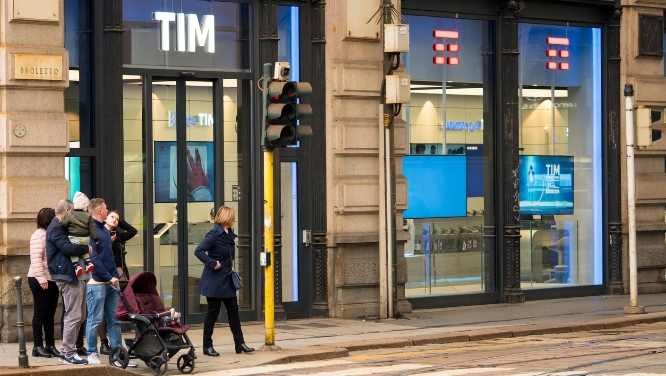Trump tax could raise 5G equipment costs by 7%, analysts calculate
AT&T, Verizon and T-Mobile could see their wireless capital expenses (capex) increase by roughly 7% due to President Trump's new tariffs, according to a rough estimate from the financial analysts at New Street Research.
"Roughly one third of capex is equipment," the analysts wrote in a note to investors Friday, following the disclosure of Trump's tariffs. "We suspect the vast majority of this will come from South Korea and Western Europe, incurring tariffs of 15-25%. We don't know the mix of countries collectively or by carrier. If we assume a rule of thumb 20% increase in equipment cost, this will drive wireless capex budgets up by 7%, assuming no change in pace of deployment or of vendors."
The analysts speculated that the nation's big wireless operators have been stockpiling wireless equipment in anticipation of Trump's possible tariffs. However, if they don't have a stockpile, they may either increase their spending or they may slow the pace of their 5G network deployments.
"We suspect all three [big US operators] will stick to their current capex budgets and slow the pace of deployment," the analysts wrote.
Nokia, Ericsson and Samsung are far and away the biggest 5G equipment suppliers to AT&T, T-Mobile and Verizon. Nokia is based in Finland, Ericsson is based in Sweden and Samsung is based in South Korea. Finland and Sweden are in the European union, which now has a 20% tariff rate, while South Korea has a 25% rate.
The New Street analysts also offered some calculations for fiber and cable network operators. For fiber, the analysts estimated Trump's moves would result in a 2% increase in the cost to build fiber to a location, from around $1,200 to $1,225. For cable, the analysts estimated a 9% increase to network upgrade capex.
Wiggle room
To be clear, the New Street analysts predicted relative smooth sailing for AT&T, Verizon, T-Mobile and other telecom operators, in comparison to the broader global economy.
"Our companies are likely to be a safe haven as the market wrestles with tariff impacts," they wrote. "Revenue and EBITDA [earnings before interest, taxes, depreciation, and amortisation] impacts are likely to be neutral to modestly positive. Tariffs will push equipment costs higher, threatening capex and FCF [free cash flow]; however, carriers are likely to slow deployment to preserve the current trajectories of dividends and repurchases."
The analysts also speculated that the cost of smartphones will increase due to Trump's tariffs. Operators selling smartphones may pass that cost on to their customers. However, if they don't, they will likely eat that expense due to rising levels of competition rather than tariffs.
Finally, the analysts speculated that US telecom operators will generally weather international economic turmoil better than most other US companies. "We would expect our companies to outperform the broader market while the risk of tariffs is being priced in and then underperform once sectors that are more impacted by tariffs start to recover," they wrote.
Nokia's view
Trump's new global tariffs don't make much sense to Brian Hendricks, Nokia's top policy executive in Washington, DC.
"It's a challenge and it's bad policy," he told Light Reading.
Hendricks explained that Nokia for years has been working to diversify its manufacturing efforts away from China, in part due to pressure from US regulators. And now it's facing tariffs anyway.
"But what's even more troubling to understand is, if the goal is ultimately to attract manufacturing to the United States, how does making the import of components – many of which are not available from the industrial base of the United States – more expensive? [How does that] enhance the business case for manufacturing in the United States?" he asked.
Hendricks continued: "It's a rhetorical question. Because it doesn't – in any way shape or form – make the business case stronger. And I say that as a company that has invested very heavily in the United States, and is continuing to look at ways to invest in manufacturing in the US. [With Trump's new tariffs] it just got a whole lot more difficult to do that."
And now, heading into 2025 and beyond, Hendricks said Nokia may step more carefully when it comes to addressing future US policy goals.
"It does raise concerns," he said. "You're following the desires of various governments to make investments and to make decisions – to then have this kind of whip-saw happen so quickly, it tends to make one very cautious."
He concluded: "Once bitten, twice shy."





